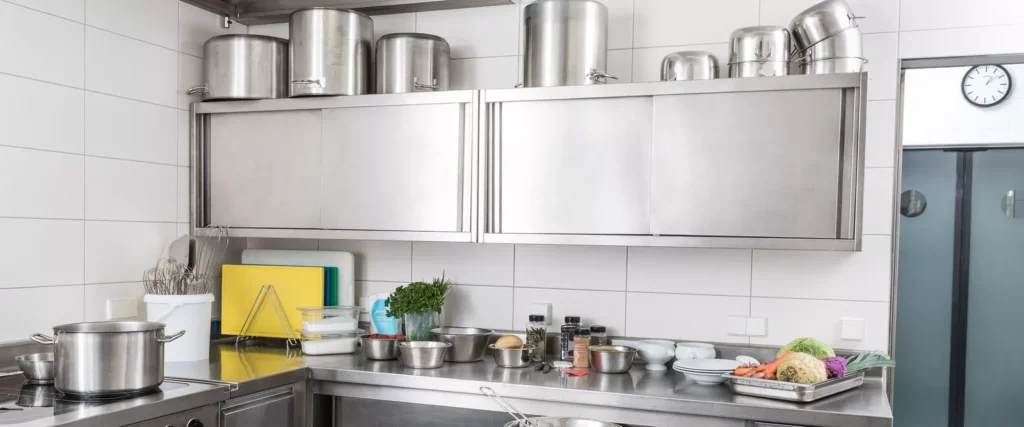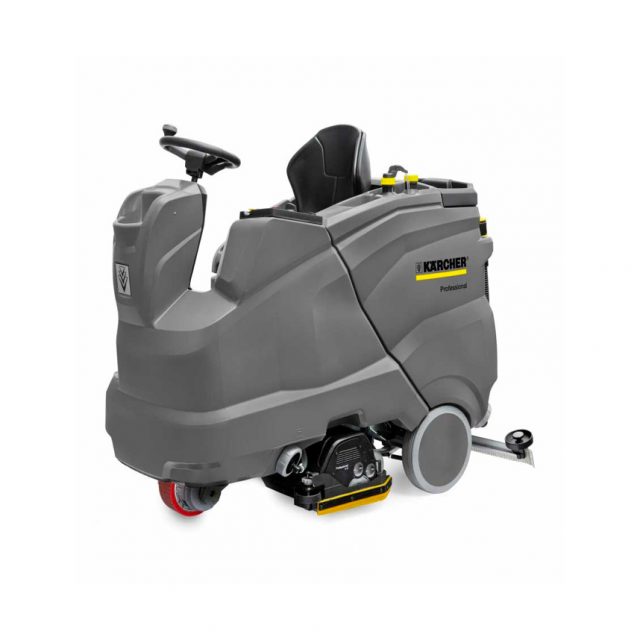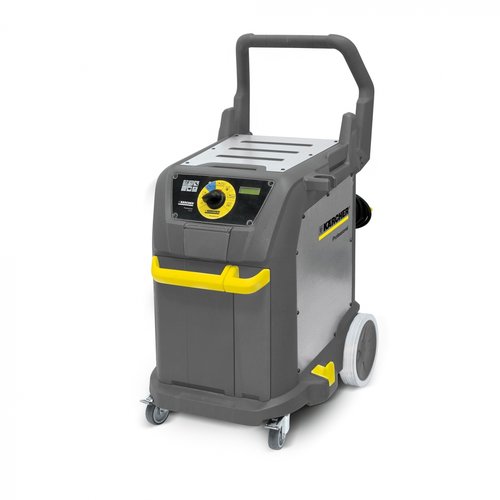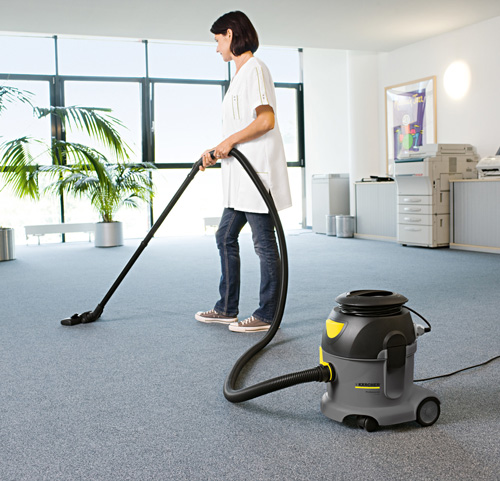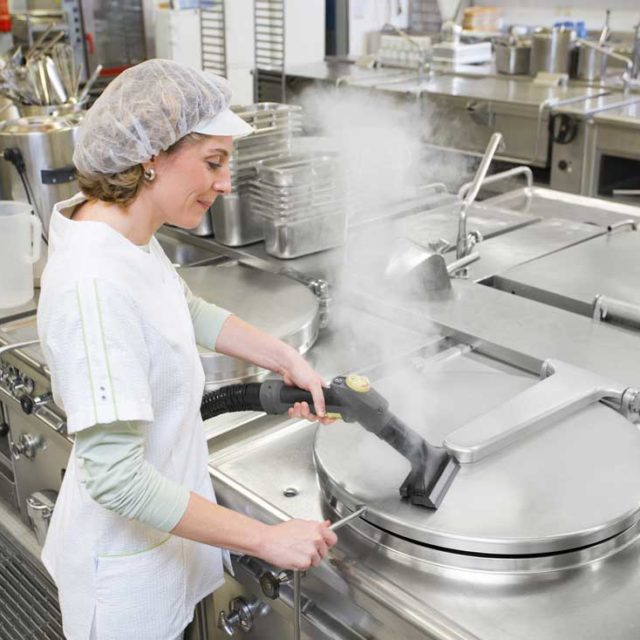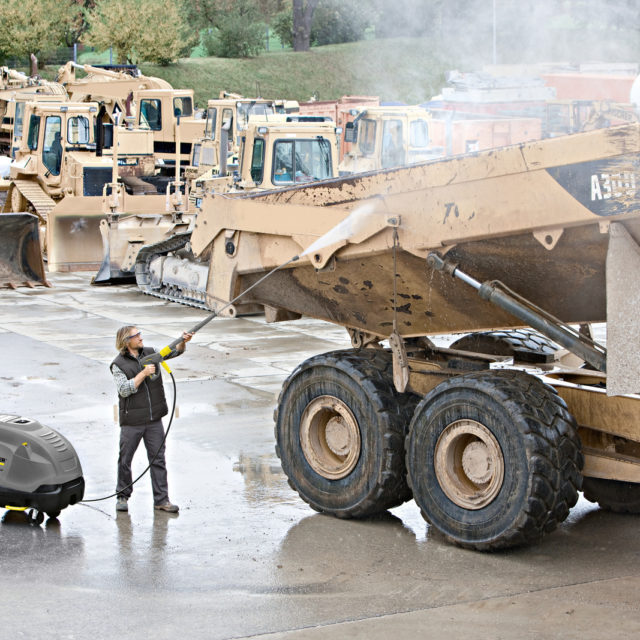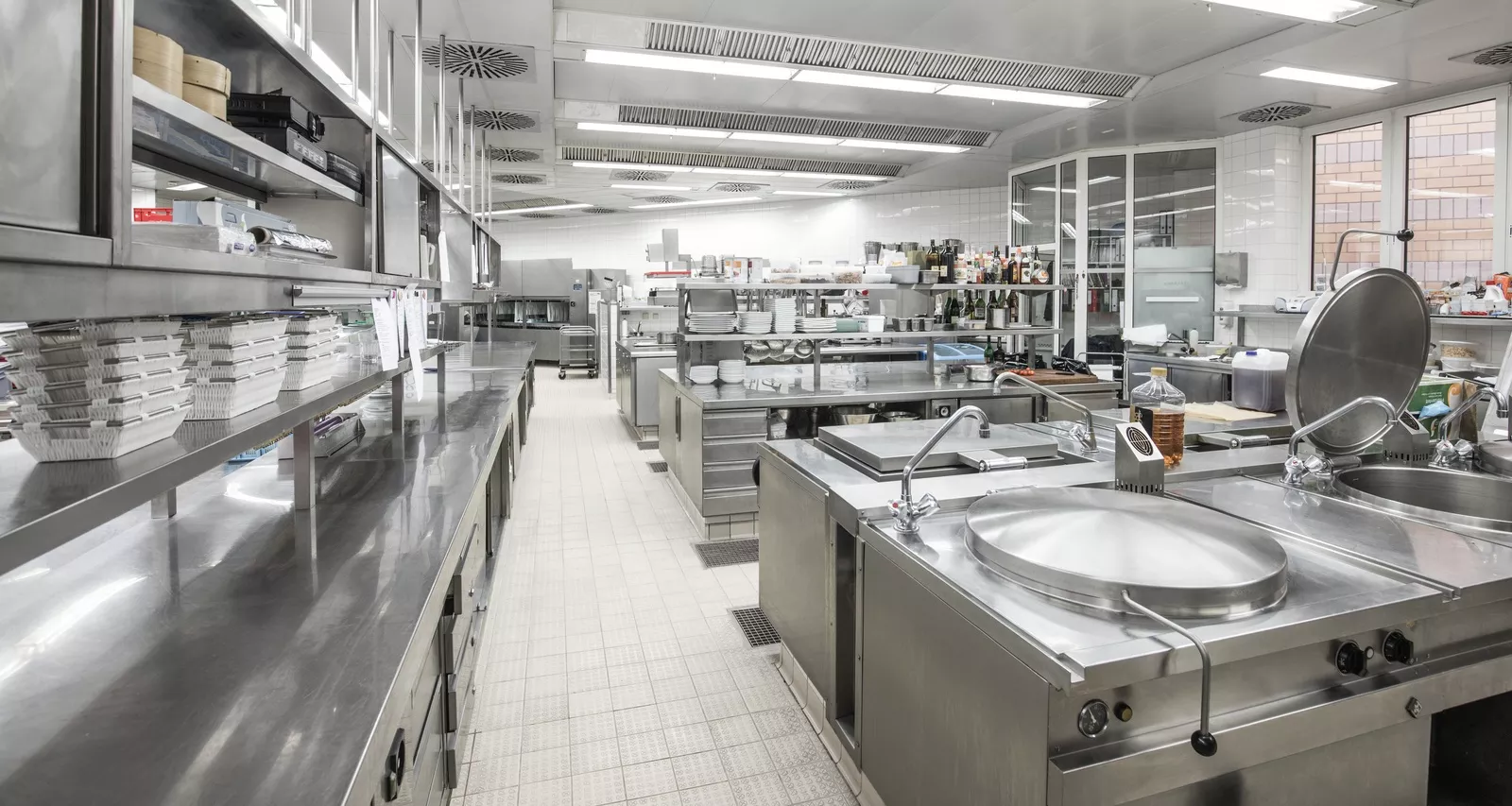
Maintaining and cleaning a commercial kitchen is a critical part of ensuring hygiene, safety, and compliance with regulations. Even with the best industrial cleaning equipment, there are trouble spots that can be overlooked, and missteps in cleaning procedures can lead to non-compliance with hygiene standards.
From food hygiene regulations to hazard prevention, cleaning catering equipment in a commercial kitchen goes far beyond wiping down surfaces. Here’s how you can ensure your kitchen is spotless, safe, and operating at its best.
The Importance of a Well-Planned Kitchen Layout
How your kitchen is organised has a direct impact on how easy it is to clean. By designing your workspace with cleaning in mind, you can minimise nooks and crannies that collect dirt and make thorough cleaning more challenging.
Pay close attention to often-overlooked areas, including:
Drains and ducts: These can collect grease, food particles, and bacteria, making them hotspots for contamination.
Beneath counters and equipment: Debris can quickly accumulate in these hidden areas, leading to pest problems and unpleasant odours.
Around electrical equipment: Careful cleaning with reduced pressure is essential to avoid damage while ensuring hygiene.
By maintaining clear, accessible surfaces and cleaning these often-neglected areas, you’ll streamline the cleaning process and reduce the risk of contamination.
Using the Right Industrial Cleaning Equipment
A “good enough” approach to cleaning products and equipment can lead to hygiene failures. For instance, using only degreasers to clean a deep fat fryer may remove surface grime but won’t eliminate bacteria or reach hidden areas.
Here’s where specialised industrial floor cleaning equipment and tools come into play:
Steam cleaners: Essential for killing microorganisms and reaching areas that brushes or cloths can’t access. Perfect for intricate surfaces like the edges of dishwashers or ribbed oven fronts.
Foam cleaners: High-pressure foam application sticks to surfaces, allowing cleaning agents to work effectively over time without running off prematurely.
Scrubber dryer: These machines ensure deep cleaning of textured kitchen floors while vacuuming up dirty water to prevent residue.
Keeping your cleaning tools in pristine condition is equally important. A dirty mop or poorly maintained equipment can undo all your hard work, leaving a bad impression on health inspectors.
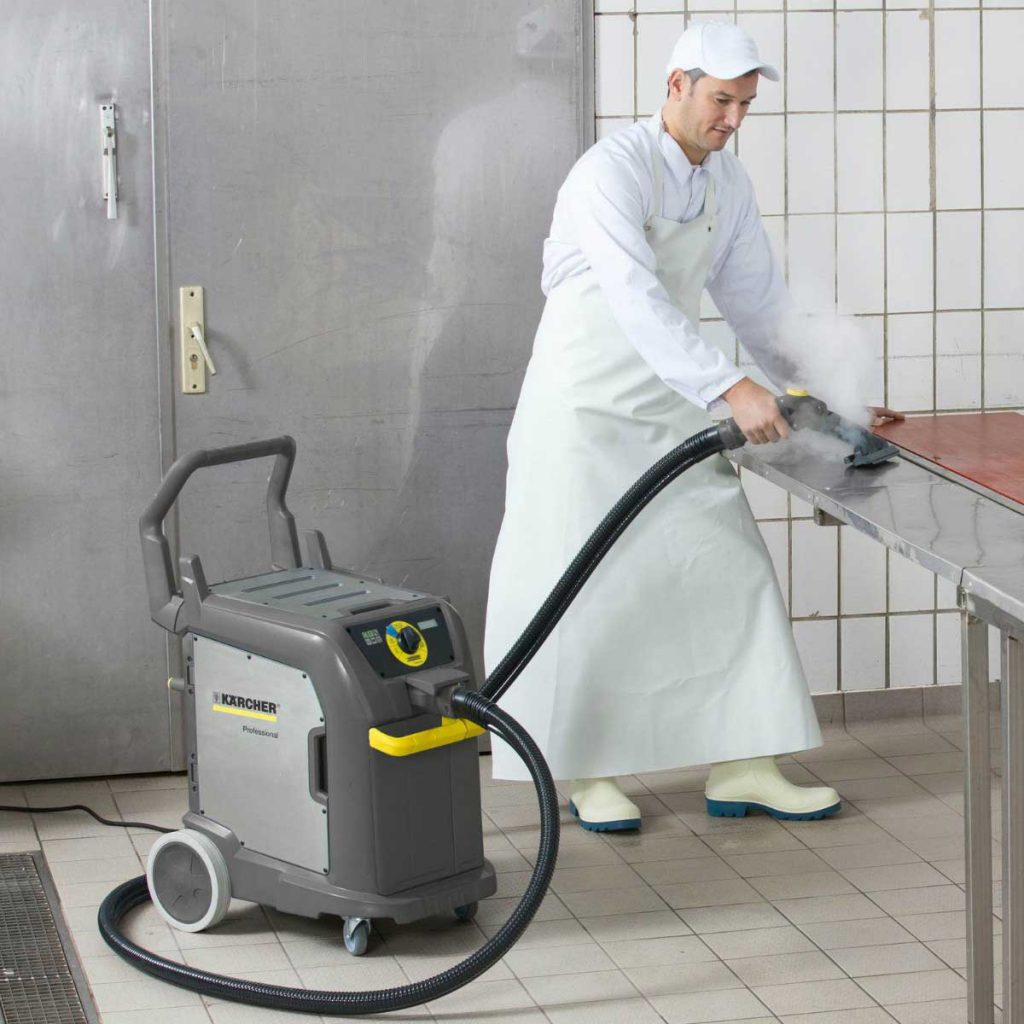
Adhering to HACCP Guidelines
The Hazard Analysis Critical Control Point (HACCP) system is an essential framework for ensuring food safety in commercial kitchens. Implementing this system involves strict cleaning schedules and clear documentation.
Create a cleaning schedule that specifies:
What: Machines, surfaces, and floors that require cleaning.
When: Cleaning intervals, such as after each use, daily, or weekly.
With what: The cleaning agents and equipment to use.
By whom: The employees responsible for cleaning specific areas.
Documenting completed tasks with signatures not only ensures accountability but also provides evidence of compliance during inspections.
Cleaning and Disinfection: A Two-Step Process
It’s crucial to understand the distinction between cleaning and disinfection:
Cleaning: Removes visible dirt, product residue, and microorganisms.
Disinfection: Kills remaining microorganisms to a safe level, ensuring no health risks.
For food-contact surfaces, always clean first before applying disinfectants. After disinfection, rinse surfaces with clean water to remove any chemical residue, ensuring food safety.]
Cleaning Specific Areas of a Commercial Kitchen
Tiles and Surfaces
Bright tiles and stainless steel define many commercial kitchens, but they also show dirt and grime easily. Using foam nozzles or high-pressure cleaners is a practical way to clean these surfaces efficiently.
Foam application: Apply foam from bottom to top to maximise contact time.
Rinse: Clean from top to bottom to wash away dirt and cleaning agents.
For acidic cleaners, ensure you rinse tile joints with water beforehand to protect the grouting.
Large Utensils and Machines
For larger items like ovens, dishwashers, or hobs, steam cleaners are invaluable. Steam reaches into crevices and textured surfaces, ensuring a thorough clean without harsh chemicals. Use reduced pressure near sensitive electrical components to avoid damage.
Kitchen Floors
Commercial kitchen floors require robust cleaning due to their textured, slip-resistant surfaces. Grease and debris can become trapped between tiles and displacement nubs.
- Surface cleaners: Use high-pressure cleaners with rotating nozzles to target stubborn dirt.
- Scrubber dryer: These machines effectively clean textured floors while vacuuming up dirty water, leaving the floor dry and ready to use.
- Steam cleaners: For deep cleaning, steam helps break down grease and sanitises the surface.
Defrosting Freezers with Steam
Freezers often accumulate ice over time, which can be time-consuming to remove manually. Applying steam between the ice and the inner walls is a highly efficient way to defrost freezers, saving time and effort while maintaining hygiene standards.
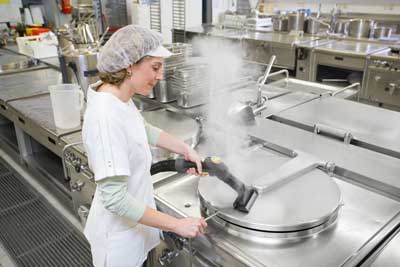
Documenting Your Cleaning Processes
Having a cleaning routine is one thing, but documenting it is essential for consistency, accountability, and compliance. Detailed documentation ensures that all tasks are completed correctly and that new team members can easily follow established procedures.
Make sure to include:
- Checklists for each cleaning task.
- Logs for completed work.
- Clear instructions on cleaning methods, tools, and schedules.
Regularly reviewing your cleaning processes also allows you to identify any gaps or areas for improvement.
The Benefits of Regular and Effective Cleaning
Maintaining a thorough cleaning routine offers several benefits:
Hygiene compliance: Adhering to food safety regulations ensures your kitchen avoids penalties or closures.
Customer satisfaction: A clean kitchen leads to better food quality and service, enhancing your reputation.
Cost savings: Regular cleaning prevents equipment breakdowns and extends the life of your catering tools.
Employee safety: A clean workspace reduces the risk of slips, falls, and contamination.
Keeping Your Kitchen Clean and Compliant
Cleaning a commercial kitchen is no easy task, but with the right tools, processes, and mindset, it can be done efficiently and effectively. By following HACCP guidelines, using specialised industrial cleaning equipment, and documenting your processes, you can maintain a hygienic, safe, and compliant workspace.
At Kärcher Hire, we offer professional-grade equipment to help you achieve the highest cleaning standards in your commercial kitchen. Contact us today to learn more about our equipment rental options and how we can support your cleaning needs.

















